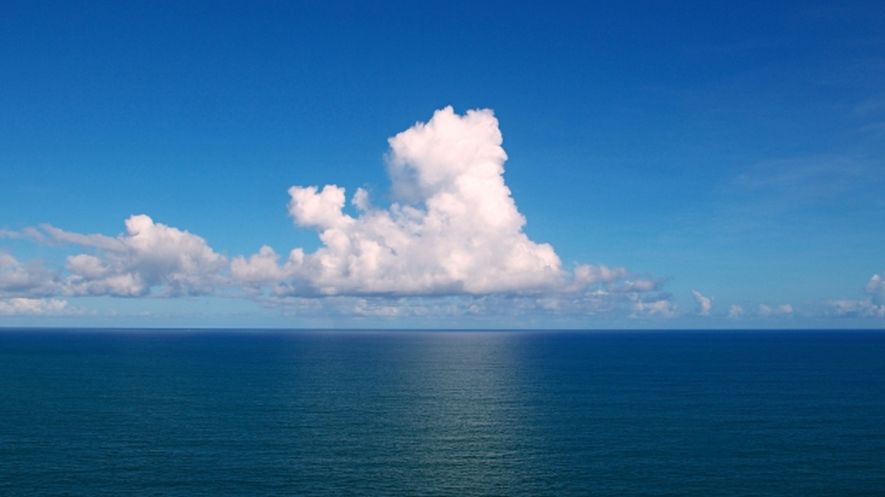In response to mounting concerns about declines in ocean health, States at the United Nations (UN) delivered some good news last week.
The first of four two-week UN Preparatory Committee sessions concluded on a positive note on Friday April 8, 2016 by identifying key elements for a new treaty to better protect and sustain the marine environment and marine life in the two thirds of the ocean beyond national boundaries and adopted a roadmap for the path ahead. The next session will be convened from 26 August to 9 September 2016.
These discussions revealed broad-based agreement on three of the four main topic areas, according to Kristina M Gjerde, Senior High Seas Advisor to IUCN’s Global Marine and Polar Programme. “These included the need for precautionary action to sustain the health of species and ecosystems through networks of marine protected areas; the need to review the impacts of human activities prior to approving them so that measures can be taken to avoid significant adverse harm; and the need to build capacity and share technologies to ensure effective implementation of the agreement.”
Significant progress was also made on the fourth -- and most contentious -- issue: how benefits derived from marine genetic resources from the high seas and the international seabed Area might be shared amongst the global community. According to Hiroko Muraki Gottlieb, Legal Expert at IUCN’s Permanent Observer Mission to the UN in New York, “while differences remain as to whether living marine resources in the high seas and the international seabed Area are or should be part of the ‘common heritage of mankind,’ discussions are now turning to pragmatic approaches as to how and what kind of benefits might be fairly and equitably shared.”
“States also shared in recognizing the importance of enhancing marine scientific research and exchanging information, which can enable developing and developed countries to better manage marine activities and to conserve marine life,” added Hiroko Muraki Gottlieb.
Recommendations for draft elements for a new agreement under the 1982 UN Convention on the Law of the Sea are to be delivered to the UN General Assembly by the end of 2107. Though many tough challenges remain, it is widely hoped that a decision to launch formal negotiations to draft the text of a new treaty based on the PrepCom’s recommendations will be taken by 2018.
At stake is no less that the future health of the global ocean and its role in sustaining and nourishing life on this planet. As revealed in the recent First World Ocean Assessment (see story below), released by the UN in January 2016, the ocean has already absorbed more than 93% of heat generated by increasing CO2 emissions, buffering impacts on land. In the process, however, is it becoming warmer, more acidic and less oxygenated. Such impacts are decreasing the ability of many marine species to find food, reproduce and tolerate the many additional stresses inflicted by overfishing, pollution and habitat degradation. Combined, these changes may threaten ocean productivity, biodiversity and food supplies.
That is why a robust new treaty is essential. “Saving the high seas and international seabed Area is beyond the capacity of any one nation: international cooperation is essential,” says Kristina Gjerde. “Despite some continuing disagreements on principles and priorities, it is hoped that nations can keep the spirit of the 2015 Paris Agreement alive, paving the way for a new treaty that puts the common interests and common concerns of all States and peoples at its heart and central core.”
For more information
On IUCN’s role in this process, see “Can the world agree on how to conserve the oceans?” Blog by Lydia Slobodian, Legal Officer, IUCN.
For IUCN position papers, policy briefs, statements and a Matrix of Suggestions for the new agreement, click here.
For a summary of the First World Ocean Assessment see, click here.
The full report is available.
The World Ocean Assessment (First Global Integrated Marine Assessment) is the first and most comprehensive assessment ever undertaken on the world’s ocean. The report’s take-away message is that “[h]uman impacts on the sea are no longer minor in relation to the overall scale of the ocean. A coherent overall approach is needed.”
This Assessment incorporates the most current knowledge on the biological, chemical, economic, physical, and social aspects of the ocean, provided by scientific experts who have researched the ocean, their flora and fauna, the ways in which humans are benefiting from, and impacting on the ocean. The Assessment concludes that the ocean is in desperate need of comprehensive sustainable management for all sectors of human activities affecting the ocean.
Throughout the 55-chapter Assessment, numerous experts from various specialties examine the complex and interrelated issues affecting the ocean’s overall health. This Assessment is comprised of seven parts, which are broken down into coherent chapters that are easily digestible and invaluable to the understanding of the current status of the world’s ocean. Included in the detailed chapter assessments are: Major Ecosystem Services from the Marine Environment, Cross-cutting Issues of Food Security and Food Safety, Human Activities and the Marine Environment, and Marine Biological Diversity and Habitat. Never before has there been such a comprehensive scientific and socioeconomic assessment conducted on the world’s ocean.
The Assessment’s exploration of marine ecosystems and marine biodiversity in relation to the myriad of impacts examined throughout, which include but are not limited to: climate change, ocean acidification, changing sea ice, storm frequency, land-based activities, marine debris, unsustainable fishing practices, shipping, and invasive species, provides crucial insight into understanding the ocean’s looming future.
It is hoped that the recent scientific findings exposed in the First Global Integrated Marine Assessment are widely read and incorporated. These important results can provide a shared scientific basis to inform the development of the new marine biodiversity agreement, the implementation of the Sustainable Development Goals, and more coherent management systems within and beyond national boundaries.





